Corded Hammer Drill
When it comes to tackling tough drilling tasks—especially those involving concrete, brick, or masonry—a corded hammer drill is a must-have power tool for both professionals and serious DIYers. Unlike cordless models that are limited by battery life, corded hammer drills deliver consistent, high-torque performance over extended periods. In this comprehensive guide, we’ll explore everything you need to know about corded hammer drills—from how they work and what to look for when buying one, to the top brands and safety tips.
orded Hammer Drill: The Ultimate Power Tool for Heavy-Duty Drilling
When it comes to tackling tough drilling tasks—especially those involving concrete, brick, or masonry—a corded hammer drill is a must-have power tool for both professionals and serious DIYers. Unlike cordless models that are limited by battery life, corded hammer drills deliver consistent, high-torque performance over extended periods. In this comprehensive guide, we’ll explore everything you need to know about corded hammer drills—from how they work and what to look for when buying one, to the top brands and safety tips.
Table of Contents
-
What Is a Corded Hammer Drill?
-
How Does a Corded Hammer Drill Work?
-
Key Features of Corded Hammer Drills
-
Advantages of Corded Hammer Drills
-
Corded vs Cordless Hammer Drills
-
Top Applications for Corded Hammer Drills
-
How to Choose the Right Corded Hammer Drill
-
Top Corded Hammer Drill Brands
-
Maintenance Tips
-
Safety Guidelines
-
Frequently Asked Questions (FAQs)
1. What Is a Corded Hammer Drill?
A corded hammer drill is a powerful electric drill that combines rotary drilling with a hammering action, allowing it to penetrate hard materials such as concrete, stone, and brick. It plugs into a wall socket for continuous power, making it ideal for demanding tasks.
Main components include:
-
A powerful electric motor
-
Dual modes: regular drilling and hammer drilling
-
A robust chuck (usually keyless or keyed)
-
Variable speed controls
2. How Does a Corded Hammer Drill Work?
Corded hammer drills function by spinning the drill bit while simultaneously striking it forward in rapid succession. This percussive action breaks up hard materials, allowing the rotating bit to penetrate more easily.
Mechanism breakdown:
-
Rotational motion drills into softer materials (wood, plastic).
-
Hammering motion assists with harder materials (concrete, masonry).
-
Many models offer a switch to toggle between hammering and regular drilling modes.
3. Key Features of Corded Hammer Drills
When choosing a corded hammer drill, several features enhance usability, performance, and durability:
a. Motor Power (Amperage)
Most corded hammer drills range from 6 to 13 amps. Higher amperage delivers more torque and power for heavy-duty applications.
b. Variable Speed Settings
Variable speed triggers and dials offer better control, especially when starting a hole or drilling into different materials.
c. Chuck Size and Type
-
1/2-inch chucks are standard for more powerful drills.
-
Choose between keyed (more secure) and keyless (quicker changes).
d. Dual Mode Operation
Look for models that allow switching between drill-only and hammer drill modes for versatility.
e. Depth Gauge and Side Handle
These accessories improve control and ensure accurate drilling depths.
4. Advantages of Corded Hammer Drills
a. Continuous Power Supply
No battery limitations. Perfect for long drilling sessions.
b. Higher Torque and Speed
More powerful than most cordless models, especially in the 8–13 amp range.
c. Cost-Effective
Generally more affordable than high-end cordless drills with similar specs.
d. Ideal for Heavy-Duty Use
Best choice for drilling into concrete slabs, brick walls, and dense stone.
5. Corded vs Cordless Hammer Drills
| Feature | Corded Hammer Drill | Cordless Hammer Drill |
|---|---|---|
| Power Source | Plug-in electric | Rechargeable battery |
| Runtime | Unlimited | Limited to battery life |
| Weight | Typically heavier | More portable |
| Torque | Higher for extended tasks | Generally lower, unless high-end |
| Best For | Masonry, construction, long tasks | Quick jobs, remote work, portability |
6. Top Applications for Corded Hammer Drills
Corded hammer drills excel in a wide range of settings:
-
Construction Sites: Drilling through concrete floors or reinforced walls.
-
Electrical Work: Making holes for conduit or wiring in masonry.
-
Plumbing Installations: Penetrating tough surfaces for pipe placement.
-
Home Renovations: Hanging shelves, anchors, or heavy fixtures.
-
DIY Projects: Ideal for serious hobbyists working on demanding materials.
7. How to Choose the Right Corded Hammer Drill
a. Job Requirements
Understand the type of materials you’ll be drilling. Masonry and concrete need more power (10+ amps).
b. Ergonomics
Look for models with a comfortable grip, anti-vibration handles, and a lightweight body if prolonged use is anticipated.
c. Accessories
Ensure compatibility with SDS-plus or SDS-max bits if you’re going for an SDS drill. Check if a depth rod or side handle is included.
d. Brand and Warranty
Top brands offer long-term warranties, quality components, and replacement part availability.
8. Top Corded Hammer Drill Brands
a. DEWALT
Known for durability and performance, DEWALT offers several high-torque corded hammer drills with variable speed control and robust build quality.
b. Bosch
Bosch corded hammer drills are favored for their precision engineering and SDS systems.
c. Makita
Makita’s offerings often include anti-vibration features and long-lasting motors.
d. Milwaukee
Milwaukee’s corded hammer drills feature powerful motors and ergonomic designs—ideal for job sites.
e. Black+Decker
More budget-friendly, suitable for homeowners and occasional use.
9. Maintenance Tips for Corded Hammer Drills
Proper maintenance ensures longevity and safety:
-
Clean after use to remove dust and debris.
-
Lubricate moving parts as per manufacturer instructions.
-
Inspect the power cord regularly for wear or damage.
-
Check the chuck and bit for wear and ensure they’re tightened securely.
-
Store in a dry, dust-free area to prevent corrosion.
10. Safety Guidelines
Always follow these essential safety tips:
-
Wear safety glasses to protect against flying debris.
-
Use ear protection—corded hammer drills are loud.
-
Secure your workpiece and ensure stability.
-
Use both hands on the drill to prevent kickback.
-
Disconnect the drill when changing bits.
-
Avoid loose clothing or jewelry that could get caught.
11. Frequently Asked Questions (FAQs)
Q1. Can I use a corded hammer drill as a regular drill?
Yes. Most models have a switch to toggle between hammer and standard drilling modes, making them versatile for various materials.
Q2. What materials can a corded hammer drill penetrate?
They are ideal for concrete, stone, masonry, and also work well on wood and metal in regular drill mode.
Q3. Are corded hammer drills better than cordless ones?
Corded models offer more power and unlimited runtime, making them better for heavy-duty and extended tasks. Cordless models are better for portability.
Q4. Do I need special drill bits?
Yes. Use masonry bits for concrete and SDS bits if your drill supports an SDS chuck.
Q5. How do I know if my drill is overheating?
If you notice a burning smell or the housing becomes too hot to touch, stop use immediately and let it cool.

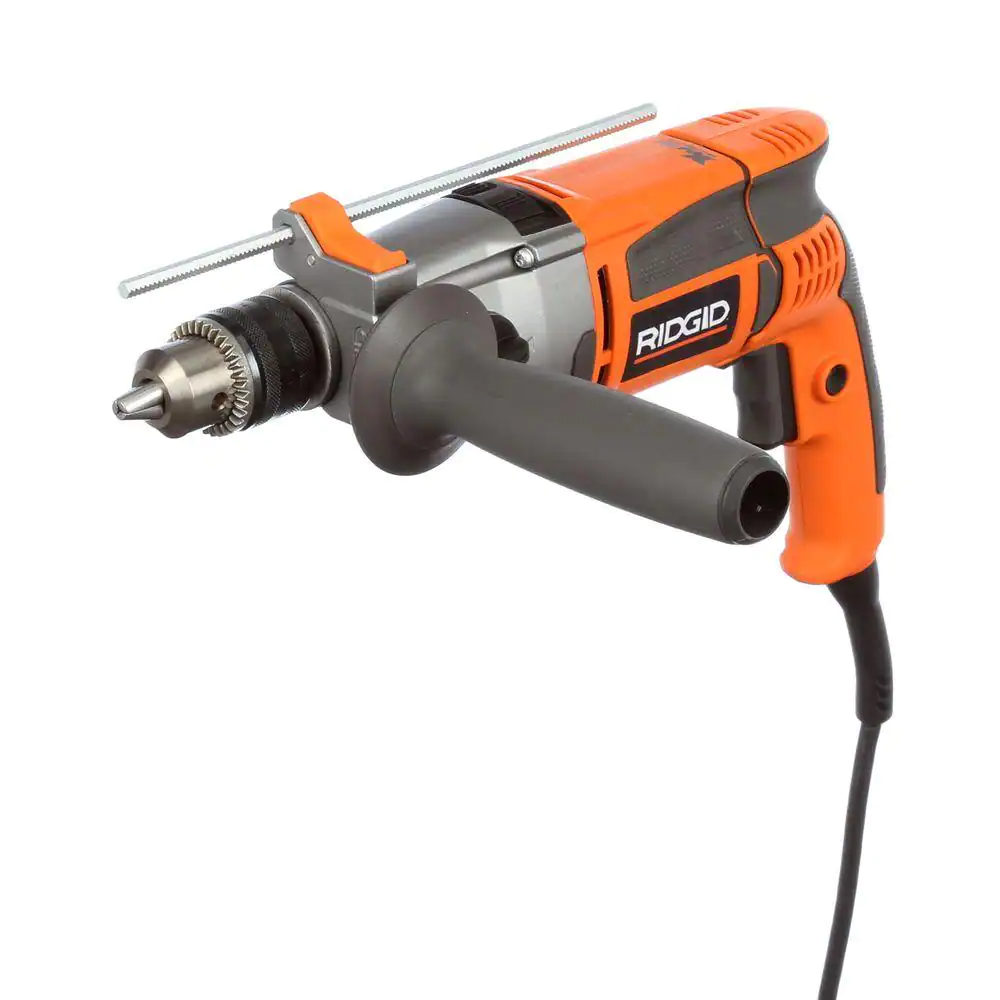
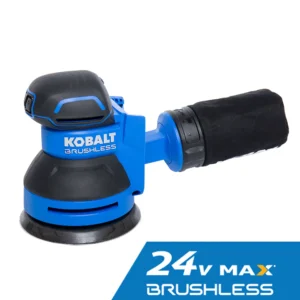

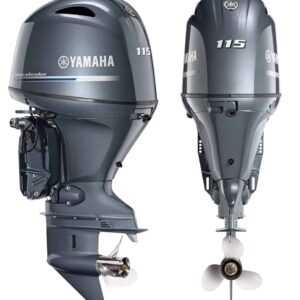
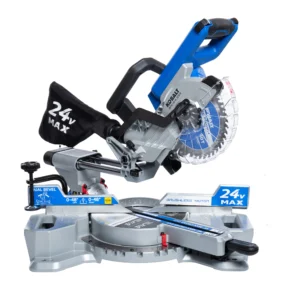
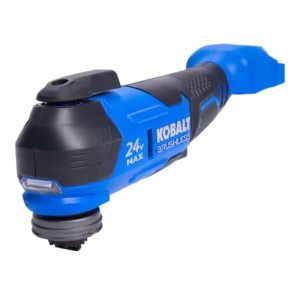
There are no reviews yet.